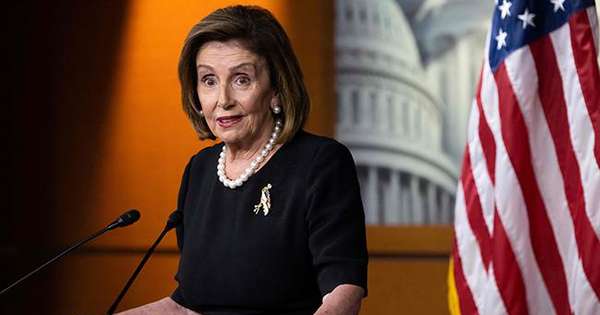Pelosi and China’s Covert “Military Aid” – Julie Vasconcelos
4 min read

Nancy Pelosi’s visit to Taiwan on August 3 may have been a necessary argument for China to carry out the long-planned military tests, but there is no justification for carrying them out. Pelosi may have given the country a “gift.” If the goal was to ensure a strong Taiwan, this commitment was not achieved.
According to this event, China should regulate military operations in the strait that separates the island of Formosa from the mainland. The flurry of Chinese military activity indicates that the country is waiting for the best moment to launch tests. They needed the right moment, without causing external geostrategic misunderstandings. That’s what Pelosi delivered.
The last attempt to intimidate Taiwan was in 1995/96. During this period, China conducted missile tests in the waters surrounding the island ahead of the first independent presidential election in the region, which is considered a Chinese rebel province. But Bill Clinton (President of the United States) interrupted the tests by sending the aircraft carrier USS Nimitz to the region. With less offensive capability, at the time, China retreated.
Without major international questions, the Chinese needed a favorable situation to fully demonstrate their strength. Pelosi defended the scene. The military tests are valuable and allow China to increase its readiness and improve the effectiveness of its naval and air forces in future operations involving the two regions.
This increases Chinese opportunities for more frequent incursions into the ADIZ and increased maritime military operations, gradually disappearing the Intermediate Line, a kind of unofficial neutral zone between the two regions, respected for decades but neglected in recent years. .
Xi Jinping’s policy also benefited from the US delegation’s visit to the island. Xi is seeking a third term in office, and while party movements are heating up, there is no indication that the party will convene for this purpose before November. The Chinese leader is expected to meet with Congress after tensions with the island escalated.
The U.S. representative’s unexpected visit would hasten the holding of the conference (scheduled for September) and expand the current president’s advantage over possible appointments to the Politburo Standing Committee, something Pelosi certainly does not want.
The main argument for anticipation is economic, but geopolitical issues, always relevant in the current government, will be highlighted. During the congress, Xi Jinping will face some questions regarding the economy, but the Taiwan issue will facilitate discussions about the economic stagnation the country is facing and give space to military issues, which will make it favorable and free from challenges. The third decree.
Xi’s policies since becoming head of the Chinese Communist Party (CCP) in 2012 epitomize the “Chinese dream” championed by the president. This dream corresponds to the related idea of restoring national greatness, lost in previous dynasties and has ancient origins in the history of Chinese intellectual literature.
This indicates that China has a large presence on the world stage. One of the pillars of this plan is the Belt and Road Initiative (BRI), also known as the New Silk Road, which has greatly troubled the powerful West.
The Chinese dream, however, does not give up its good relations with the United States and does not want to make major changes in the international order. Pelosi’s arrival has caused a stir in this environment and could lead to a clash between the two giants.
But if Xi Jinping uses tensions with Taiwan to bolster his personal power, he risks emerging from the next CPC Congress indebted to internal forces that favor conflict. Therefore, this anticipated conference may be a signal to those outside of China to approach Taiwan with greater interest and concern.
An article published in The Economist magazine in May 2021 pointed to Taiwan as the most dangerous place on earth due to the risk of a war involving two major economic and military powers.
A Taiwan-China war would be a disaster not only because of the bloodshed (due to the increased risk of conflict between the two major nuclear powers), but also because of the terrible economic impact. The island is at the heart of the semiconductor industry, with Taiwan Semiconductor Manufacturing Company, the world’s most prestigious chip maker, TSMC, located on the island. If the production of DSMC stops, the global electronics industry will also suffer an incalculable cost!
Ideally, reasonable ways should be found to resolve differences without direct armed conflict. “When two big elephants fight, the ant and the grass get hurt” is the old saying. I hope this is not forgotten.

“Communicator. Award-winning creator. Certified twitter geek. Music ninja. General web evangelist.”




